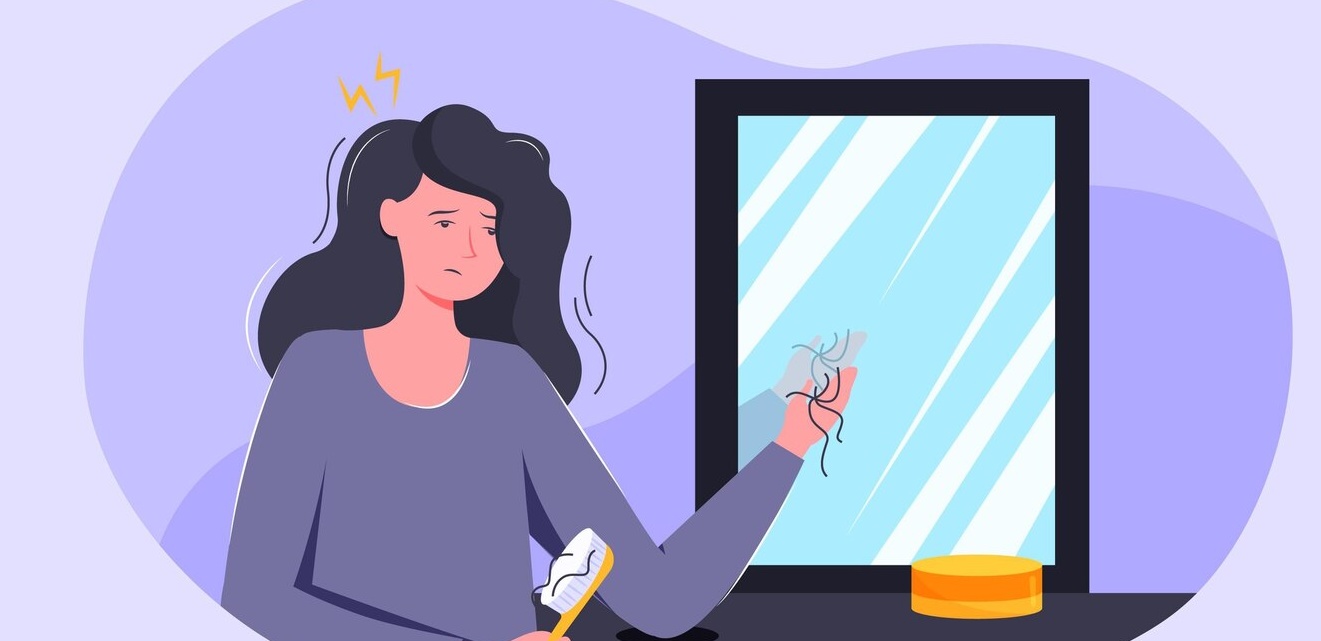Hair loss is a common and often distressing experience that can have a significant impact on a person’s life. Whether it’s thinning hair, receding hairline, or bald patches, the emotional toll of hair loss can be profound. In this blog, we will explore the causes of hair loss, its effects on life, and strategies for coping with the emotional challenges it presents.
What are the top 3 reasons for hair loss?
Hair loss can be caused by a variety of factors, including genetics, hormonal changes, medical conditions, and lifestyle choices. One of the most common causes of hair loss is androgenetic alopecia, also known as male or female pattern baldness. This hereditary condition can lead to gradual thinning of the hair and eventual baldness.
Other causes of hair loss include hormonal imbalances, such as those experienced during pregnancy or menopause, as well as medical conditions like alopecia areata, which causes sudden hair loss in patches. Certain medications, stress, and poor nutrition can also contribute to hair loss.
Understanding the underlying cause of hair loss is important for determining the most effective treatment and management strategies. Consulting with a healthcare professional or dermatologist can help identify the specific cause of hair loss and develop a personalized plan for addressing it.
The Impact of Hair Loss on Life
Hair loss can have a profound impact on a person’s self-esteem, body image, and overall quality of life. For many individuals, the emotional toll of hair loss can be just as challenging as the physical changes. The loss of hair can lead to feelings of self-consciousness, embarrassment, and even depression.
In a society that often places a high value on physical appearance, experiencing hair loss can be particularly difficult. It can affect a person’s confidence in social and professional settings, leading to feelings of insecurity and isolation. The emotional impact of hair loss can also extend to personal relationships, as individuals may struggle with how they are perceived by others.
Coping with the Emotional Challenges of Hair Loss
Coping with the emotional challenges of hair loss requires a multifaceted approach that addresses both the physical and psychological aspects of the experience. Here are some strategies for coping with the emotional impact of hair loss:
1. Seek Support: Connecting with others who have experienced hair loss can provide a sense of community and understanding. Support groups, online forums, and counseling services can offer valuable support and guidance.
2. Practice Self-Care: Engaging in self-care activities, such as exercise, meditation, and hobbies, can help reduce stress and improve overall well-being. Taking care of oneself holistically can contribute to a more positive outlook.
3. Explore Treatment Options: Depending on the cause of hair loss, there may be various treatment options available, such as medications, topical treatments, or hair restoration procedures. Consulting with a healthcare professional can help explore these options.
4. Embrace Change: Embracing the changes associated with hair loss and finding new ways to express oneself can be empowering. Experimenting with different hairstyles, accessories, or head coverings can help individuals feel more confident and in control.
5. Focus on Inner Qualities: Shifting the focus from external appearance to inner qualities and strengths can help individuals cultivate a positive self-image. Recognizing one’s worth beyond physical attributes is essential for building resilience.
How do I stop my hair from falling?
Navigating the challenges of hair loss while maintaining a fulfilling life requires finding a balance between addressing the physical aspects of hair loss and nurturing emotional well-being. It’s important to remember that hair loss does not define a person’s worth or capabilities. By seeking support, exploring treatment options, and practicing self-care, individuals can navigate the emotional rollercoaster of hair loss with resilience and grace.
In conclusion, the causes of hair loss are diverse, and the emotional impact can be significant. Understanding the underlying factors contributing to hair loss and addressing the emotional challenges it presents are essential for finding a sense of balance and well-being. By embracing change, seeking support, and focusing on inner qualities, individuals can navigate the journey of hair loss with strength and resilience. Remember, you are more than your hair, and your worth extends far beyond physical appearance.
Post time: Jul-10-2024





